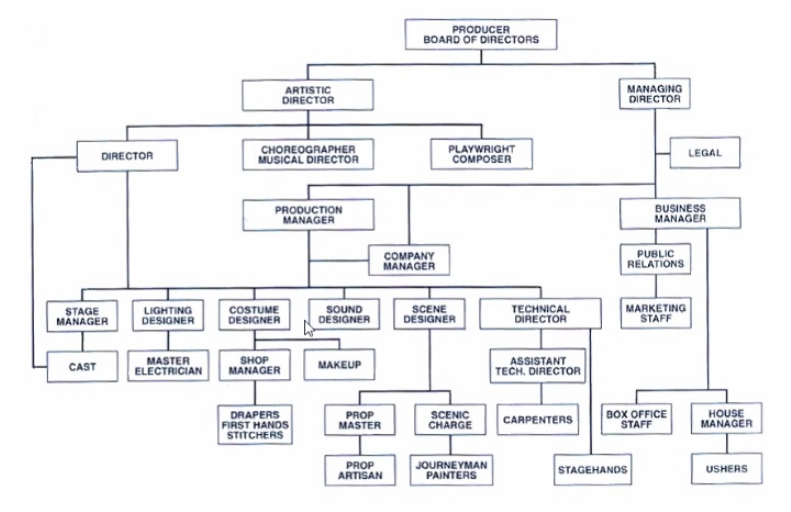The year of 2020 changed the history of many industries because of the pandemic, but we must agree that the hardest hit was felt in the performance productions. Without the possibility of an audience in person, many performances had to be adapted to online platforms. This includes theatre, that had to rather close their doors or plan online plays. Although the vaccine for COVID-19 is promised for soon, people are more aware of contamination of viruses in general and because of that, I believe the masks and social distancing procedures will stick for a while. Moreover, the topics covered in the plays will also be adapted to this new era. There are two basic kinds of theatrical traditions, the performance tradition, which is passed for generations, and a play text, where a text is interpreted, being adapted to any timeline, place or meaning. The pandemic affects theatre in both cases since a lot of topics of “during pandemic times” will be present in theatre stories, and not just related to the virus but other subjects that are not necessarily new, but people became aware of in 2020. For instance, the Black Lives Matter movement, environmental problems, and importance of social interactions.
Some styles of theatre will take more time to be back than others, for instance the immersive theatre, where the actors interact with the audience almost like the audience is part of the play. On the other hand, I think that online performances, that were not so popular before the pandemic, will continue very popular even after life gets back to normal. We should accept that we must adapt to a new normal every day since the world is changing so fast. I believe the new normal for theatre is going to be with safe social distancing procedures for each group in the audience ant this makes me wonder the effect on the relationship between performers and audience. I can see silent performances happening more often and/or with masks to represent what we have been thru. I see also changes not just on the format of a performance but also in how a production of a play have responsibility to follow with what is happening around the world. Nataki Garrett, who runs the Oregon Shakespeare Festival, which mixes classic plays with freshly-minted dramas, believes that “the theater of the future will need to take issues of environmental justice into account — including the carbon footprint of the audiences traveling to productions.” Furthermore, taking into consideration which material to use for the scenario and costumes are going to be more important than before.
Theatre is an experience where the audience can emerge into a story. The pandemic certainly caused people to rethink about their values and which stories to tell. After the pandemic it will matter even more the meaning of a play and which positive message it brings. According to artistic director Stephanie Ybarra “we will rely less on the stuff of the stage and more on the physical bodies of the performers and the words thaey speak or sing and the movement of those bodies.” The humanity has been learning more about kindness, happiness, the importance to help one another, and much more that will reflect on plays. Theatre is very influenced by what is going on around its period, for instance when Andrew Jackson was elected President of the United States in 1828, the country was fueled of nationalism spirit. Hallmarks of the nationalistic movement were patriotism, optimism, and idealism, and these values were reflected in the American theater.
The most important characteristics of theatre are that it is live, it is ephemeral, and it is collaborative. Theatre is a synthesis of many arts and unfortunately depends on the world to be safe so people can go out again. Not just to watch the performances, but to make it happen. Behind the scenes of a performance, there are months of hard work of many people, which can be seen on the diagram bellow:

Figure 1 Jobs in a theatre production – Font: Hengen, R. Scott class
In summary, theatre has been changing along with history and it will continue to do so. Unfortunately, because of the pandemic the traditional theatre had to close doors, but many of them used the opportunity to be creative and produce plays in different forms. I believe that once people can go out safely and gather to watch a play, the audience will be more engaged and the theatre can explore that challenging its audience physically, emotionally, and intellectually. Theater will always exist, maybe not the same way as before, but as discussed, it will always adapt to the new era and implement on itself the changes happening in society.
Work Cited
DC Metro Theatre Arts. “What’s the future of live theater beyond COVID-19?: A point-counterpoint between Audrey Cefaly and Elliott Bales.” April 2020. https://dcmetrotheaterarts.com/2020/04/08/what-is-the-future-of-live-theater-after-covid-19-a-point-counterpoint-between-audrey-cefaly-and-elliott-bales/.
Lambert, Craig. “The Future of Theater.” Harvard Magazine https://www.harvardmagazine.com/2012/01/the-future-of-theater
Lunden, Jeff. “What Will The Future Of Theater Look Like?” September, 2020. https://www.npr.org/2020/09/20/914251681/what-will-the-future-of-theater-look-like-our-artists-are-going-to-lead-us
University of Washington. “19th Century American Theater.” https://content.lib.washington.edu/19thcenturyactorsweb/essay.html#top